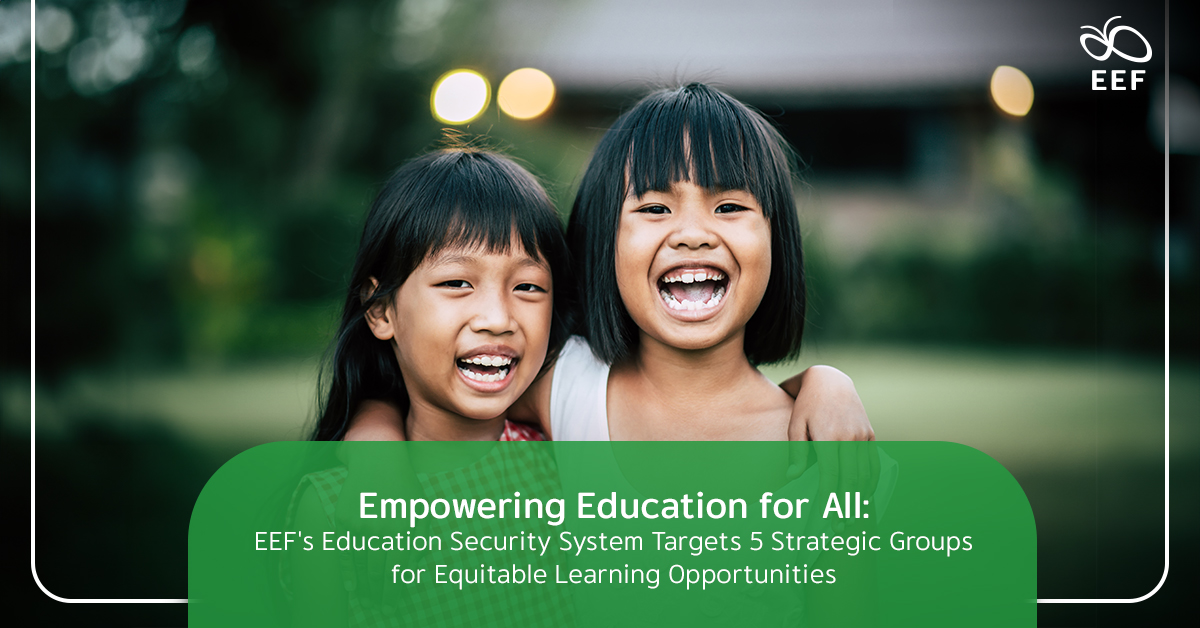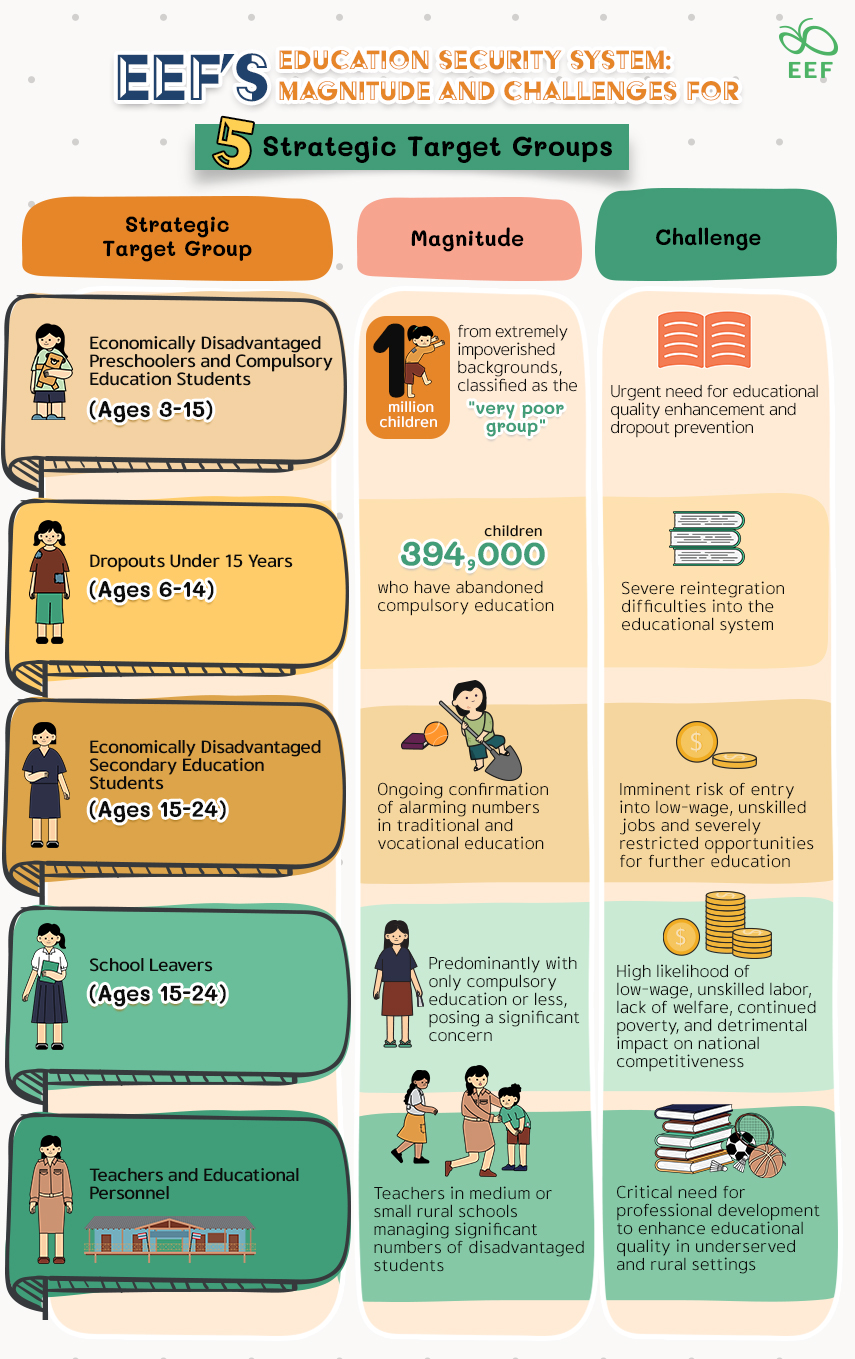
Education for All, a cornerstone of the Equitable Education Fund (EEF) Thailand’s mission, embodies an unwavering commitment to ensuring that every child has access to
learning opportunities, as enshrined in the 1990 “Jomtien Declaration,” adopted by over 200 UNESCO member states, including Thailand. This global pledge moves beyond equal access to education, focusing instead on inclusive education, providing sufficient opportunities for all children to receive appropriate education supported by robust systems, thereby enabling them to reach their full potential. At the heart of this mission is addressing the educational needs of five strategic target groups — economically disadvantaged children aged 3-15; those out of school aged 15 and below; economically disadvantaged youths aged 15-24; school leavers aged 15-24; and educational professionals. Particularly challenging is the challenge of re-integrating nearly 394,000 out-of-school children, with focused efforts aimed at enhancing educational quality, preventing dropouts, and reducing barriers to further education. Parallel to these efforts, the initiative seeks to improve teacher quality, especially in rural areas, and foster collaborative policies to reduce disparities and promote educational equity. Over the past five years, the EEF has been acting as a catalyst, mobilizing various stakeholders to drive policy changes and create enduring solutions, culminating in the Education Security System — a tangible embodiment of the Education for All vision, ensuring every child’s right to education is a vibrant and attainable reality.
EEF’s Education Security System: Magnitude and Challenges for 5 Strategic Target Groups

The Equitable Education Fund (EEF) Thailand is advancing educational equity through its Education Security System, focusing on economically disadvantaged groups. Addressing these disparities, the system confronts the pressing issue of reintegrating nearly 394,000 dropouts, while also enhancing teacher quality and fostering collaborative policies. Financial barriers also hinder access to higher education, with rising costs limiting opportunities despite scholarships. In response, EEF’s High Vocational Innovation Scholarship addresses skill shortages, linking education with employment through enhanced vocational training. Amidst these efforts, supportive schools and teachers play a vital role in mitigating dropout risks and maintaining student engagement and success, and EEF’s policy recommendations chart a dynamic roadmap for a more inclusive and equitable educational system, ensuring a future where every student’s right to education is realized through equitable and innovative solutions.

